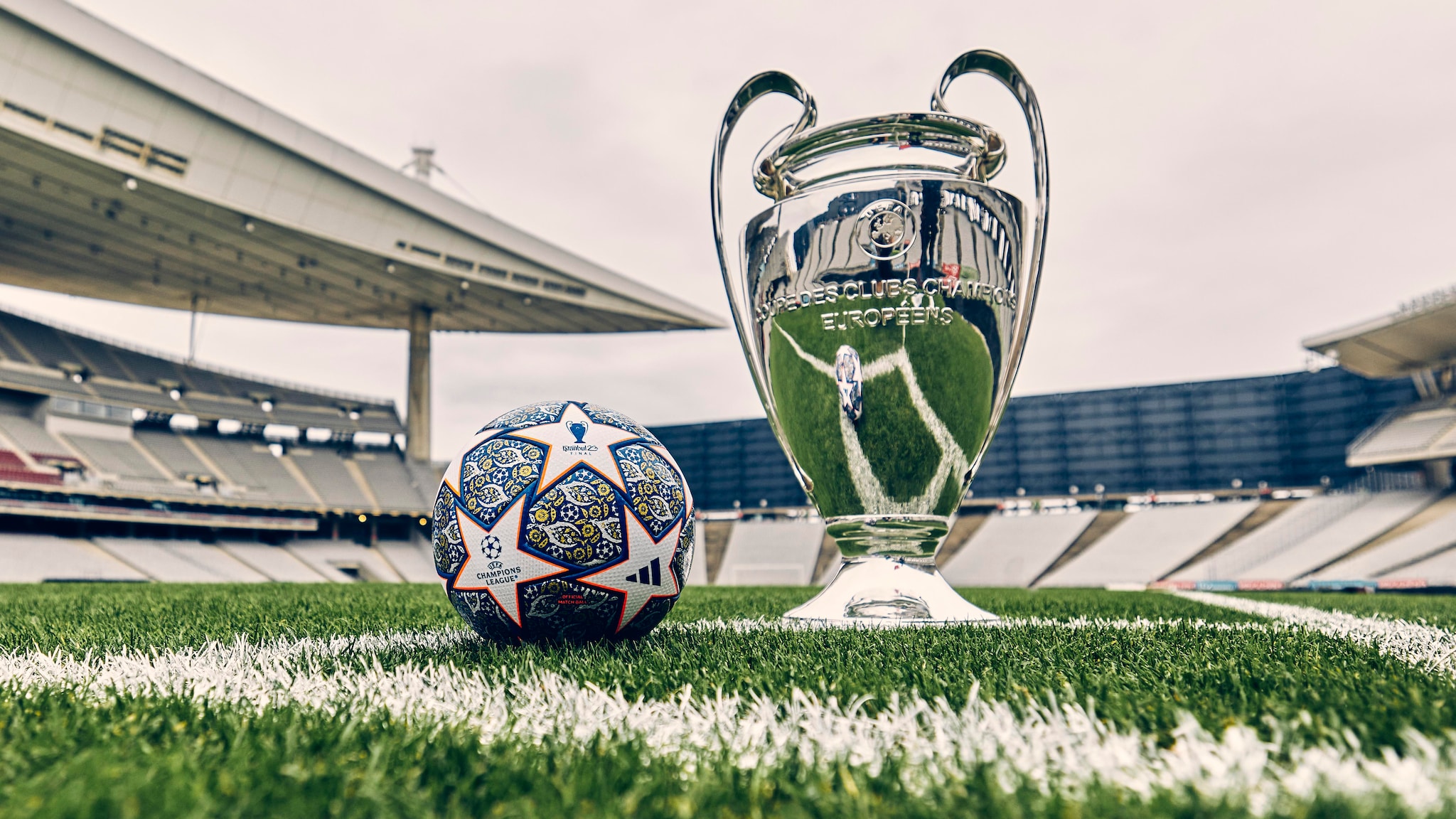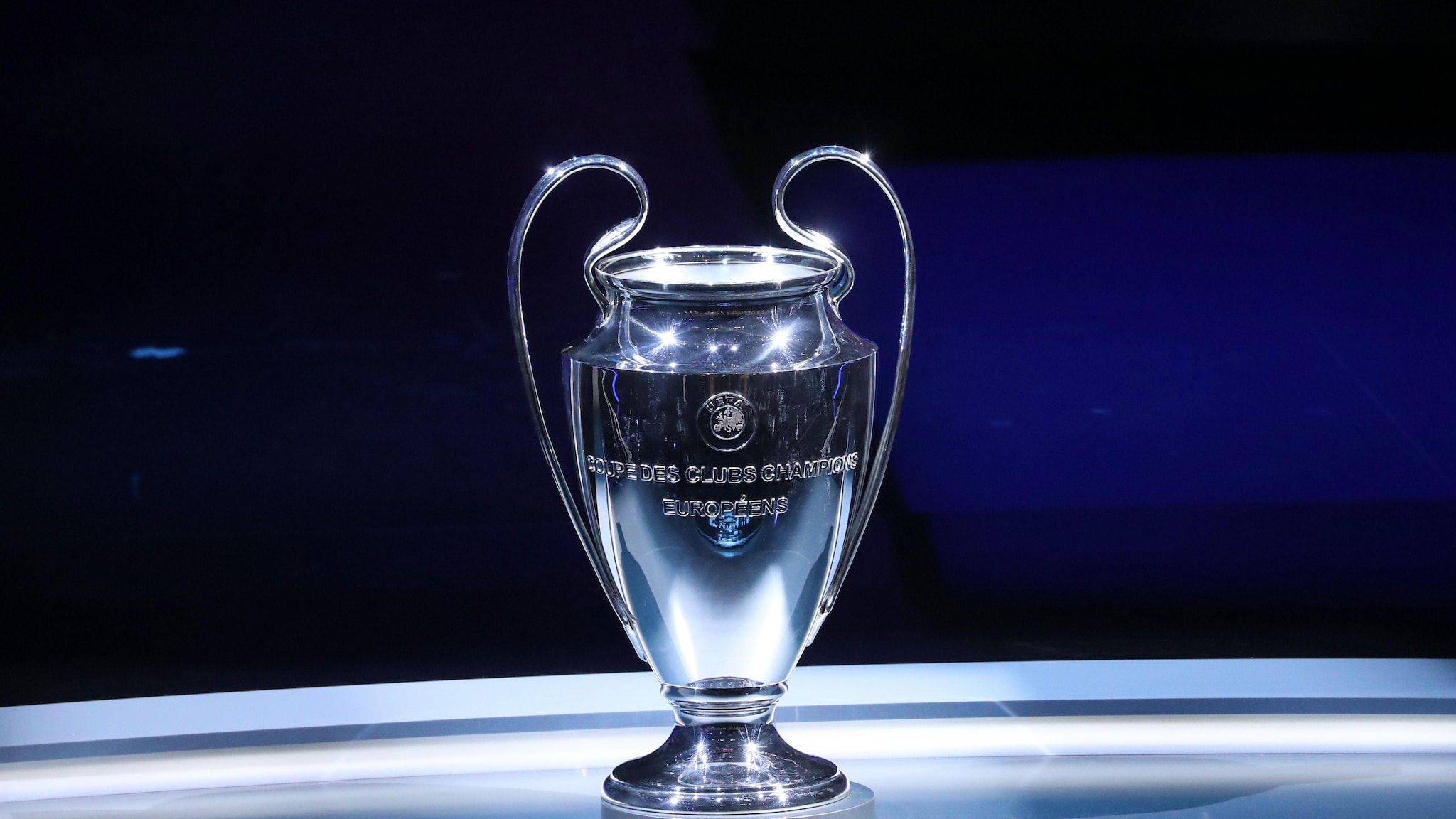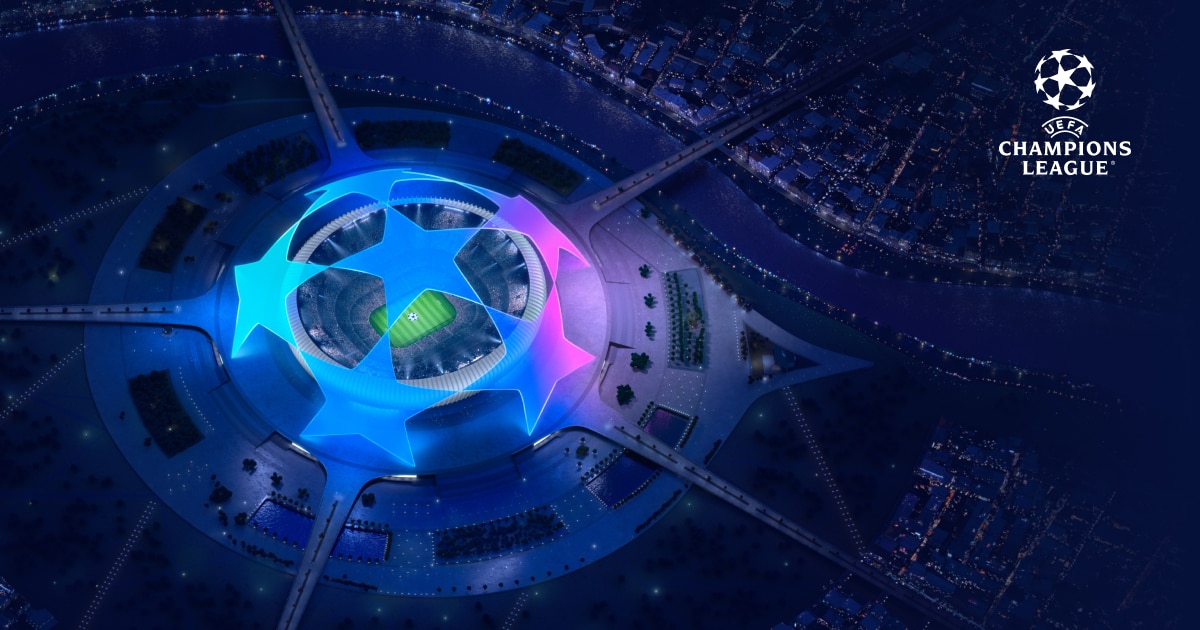Have you ever found yourself watching the UEFA Super Cup and wondering, "Does this piece of silverware truly hold the same weight as the Champions League or Europa League?" It's a question many football followers ask, and honestly, it sparks quite a bit of discussion among fans and even those who play the game. The debate about what makes a trophy "major" is a pretty interesting one, especially when we talk about European club football.
This single-match showdown brings together the champions of Europe's two biggest club competitions: the winner of the UEFA Champions League and the victor of the UEFA Europa League. It's often played right at the start of a new season, a sort of curtain-raiser, if you will, for the exciting football action ahead. For some, it's a chance to add another medal to the collection, a nice way to kick off the competitive year. Others, though, might see it as more of a friendly game with a prize at the end.
So, is the UEFA Super Cup a major trophy? That's what we are here to explore today. We'll look at its background, the teams that compete, and what makes a trophy important in the eyes of players, clubs, and supporters. We will, in a way, try to figure out its true standing in the grand scheme of European football achievements. Let's get into it.
- Yellow Hand Wave
- The Odyssey Penelope Drawing
- Caitlin Kate Todd
- Victorian Male Names
- Vinyl Stickers Lettering Wih Contact Paper
Table of Contents
- What Exactly is the UEFA Super Cup?
- The Case for the Super Cup as a "Major" Trophy
- Why Some Do Not See It as "Major"
- Player and Club Perspectives: What Do They Think?
- The UEFA Super Cup's Evolving Significance
- The Broader Landscape of European Trophies
- Frequently Asked Questions About the UEFA Super Cup
What Exactly is the UEFA Super Cup?
To really get a feel for whether the UEFA Super Cup counts as a big piece of silverware, we first need to understand what it is all about. It's a yearly football game organized by UEFA, which, as you might know, is the organization that runs football in Europe. You can visit uefa.com for more information about their competitions, like the UEFA Champions League and the UEFA Europa League, too. This match, in a way, brings together the very best from the previous club season.
A Quick Look at Its Origins
The idea for the Super Cup came about in the early 1970s. It was meant to be a way to find the ultimate club champion of Europe by having the winner of the European Cup (now the Champions League) play against the winner of the Cup Winners' Cup. This was, you know, a different time for European football. The very first official Super Cup game happened in 1973, though it wasn't recognized by UEFA until a bit later. It has, over the years, changed its format and the teams that play in it, reflecting the shifts in European club football itself. It really has a history, you see, that stretches back a good few decades.
Who Plays in the Super Cup?
These days, the Super Cup is a match between the team that wins the UEFA Champions League and the team that wins the UEFA Europa League. So, for instance, if you're looking at the 2025/2026 season, the champions of those two big tournaments from the 2024/2025 campaign would face off. This means you're always getting two top-tier clubs, usually with a lot of talented players, going head-to-head. It's a single game, played at a neutral location, which is a bit different from the multi-match formats of the Champions League or Europa League, that's for sure.
- Card Covers
- Womens Bohemian Belts For Dresses
- Cross Backgrounds For Iphone
- Jungkook Height
- We Must Be Better Men Meme
The Case for the Super Cup as a "Major" Trophy
There are definitely good reasons why some people consider the UEFA Super Cup to be a significant award. It's not just a friendly kick-about; there's a proper trophy, medals, and the chance to be called the "Super Cup winner." This, you know, does add a certain something to a club's collection of achievements. It's a way to show that you're among the very best in Europe, having conquered one of the two main club competitions.
The Prestige of the Participants
Think about it: to even get to the Super Cup, a team must have won either the Champions League or the Europa League. These are, by any measure, two of the most demanding club competitions in the world. Winning either of them requires a long season of consistent, high-level performances against other strong teams. So, the two clubs playing in the Super Cup are, in a way, already champions in their own right. This makes the match itself a contest between two very successful sides, which, you know, gives it a certain level of importance. It's not just any two teams playing, it's the champions of champions, more or less.
It is a UEFA-Sanctioned Competition
The UEFA Super Cup is officially organized and recognized by UEFA, the Union of European Football Associations. This is the same governing body that oversees the Champions League, Europa League, and other major European football events. My text tells us that uefa.com is the official site of UEFA, the governing body of football in Europe, and that they govern football, futsal, and beach football across the continent. So, when UEFA puts its name on a competition, it carries a certain official weight and legitimacy. It's not a pre-season friendly or an exhibition game; it's a formal competition with a proper structure and rules, that's for sure. This official backing lends it a level of seriousness that other, perhaps less formal, tournaments do not have.
A Chance for Early-Season Silverware
Winning the Super Cup gives a team a chance to lift a trophy right at the beginning of the new football season. This can be a huge boost for morale and confidence. Starting the season with a piece of silverware can set a positive tone for the months ahead, giving players and fans a taste of success. For a manager, it's also an early test of their team's readiness and a chance to integrate new players into a winning setup. It's a competitive game, not just a warm-up, and the desire to win is, you know, very real for everyone involved. It's a chance to make a statement, you see, right from the start.
Why Some Do Not See It as "Major"
While there are good arguments for its significance, many in the football world do not quite put the UEFA Super Cup on the same pedestal as the Champions League or even the Europa League. There are several reasons for this perspective, which, honestly, are pretty compelling when you think about them. It often comes down to the format of the competition and the overall feeling it gives off compared to other, longer tournaments.
Single-Match Format
One of the main reasons some people do not view the Super Cup as a major trophy is its single-match format. Unlike the Champions League or Europa League, which involve group stages, knockout rounds with home and away legs, and a grand final, the Super Cup is just one game. This means that a team's entire performance for the trophy comes down to 90 or 120 minutes. There is no room for error, no chance to recover from a bad first leg. A single moment of brilliance or a mistake can decide the outcome, which, you know, makes it a bit of a lottery in some ways. Major trophies, many would argue, should require a longer, more sustained effort over a period of time, not just one match.
Less Financial Reward
Compared to the massive financial prizes associated with winning the Champions League or even making it deep into the Europa League, the monetary reward for winning the Super Cup is considerably smaller. While clubs do receive prize money for participating and winning, it is not on the same scale as the income generated from progression through the group stages and knockout rounds of the main UEFA club competitions. For clubs, especially those looking to boost their budgets for transfers or operations, the Super Cup's financial incentive is, you know, less of a driving force. This can, in a way, influence how seriously some clubs prioritize it, too.
Comparison to the Champions League and Europa League
When you stack it up against the UEFA Champions League or the UEFA Europa League, the Super Cup often feels like a different kind of competition. The Champions League, for example, is the pinnacle of European club football. My text mentions that the Champions League is an annual club football competition organized by UEFA, with top-tier clubs from Europe taking part through league stages and knockout rounds. It's a marathon, not a sprint, and winning it truly marks a team as the best in Europe. The Europa League, too, is a significant test of depth and endurance. The Super Cup, by contrast, is a one-off event. It does not have the same build-up, the same dramatic journey, or the same level of sustained pressure. Because of this, many fans and players tend to see it as a lesser achievement compared to the two tournaments that grant entry into it. It's almost like, a bonus prize, rather than a main quest, if you get what I mean.
Player and Club Perspectives: What Do They Think?
The way players and clubs approach the UEFA Super Cup can tell us a lot about its perceived importance. While every professional wants to win every game and every trophy available, the Super Cup sometimes falls into a unique category. It's a piece of silverware they want, but the effort put into it might vary depending on other, bigger goals for the season. This, you know, is a pretty common thing in professional sports, where priorities often shift.
Player Reactions and Celebrations
When a team wins the Super Cup, the players absolutely celebrate. They lift the trophy, they get their medals, and there's a definite feeling of accomplishment. You can see the joy on their faces, and they are, in a way, very happy to have won. However, if you compare those celebrations to the scenes after winning a Champions League final, there's often a noticeable difference in the sheer outpouring of emotion and the scale of the celebration. Winning the Champions League, or even a domestic league title, usually brings a much more intense and prolonged celebration, which, you know, speaks volumes about how players themselves rank these achievements. It's a nice win, to be sure, but perhaps not the ultimate goal for most players.
Club Priorities and Squad Rotation
For clubs, especially those competing in multiple competitions, the Super Cup can sometimes be viewed through the lens of pre-season preparation and squad management. Managers might use the game to give minutes to new signings, test out tactics, or give fringe players a chance to impress. While they always aim to win, the primary focus for the season often remains the domestic league and the Champions League or Europa League. This means that sometimes, a club might not field its absolute strongest starting eleven, especially if key players are returning from injury or need rest before the demanding season truly begins. This approach, you know, can sometimes suggest that the Super Cup is a bit lower on the priority list compared to the longer, more financially rewarding campaigns. It's a balancing act, you see, for these teams.
The UEFA Super Cup's Evolving Significance
The importance of the UEFA Super Cup has, in a way, shifted over the years. What was once seen as a straightforward contest between two European champions has, you know, taken on different shades of meaning depending on the era and the broader football landscape. It's almost like its status is always a little bit in flux, depending on who you ask and when.
A Historical Lens
In its earlier days, the Super Cup perhaps held a slightly different kind of appeal. With fewer major European club competitions around, it was a more unique opportunity to see two continental champions clash. It was, in some respects, a true "super" match. As football has changed, with more competitions, more money, and more global reach, the focus has, you know, increasingly centered on the Champions League as the ultimate prize. The Super Cup's place in the football calendar and its role in defining European supremacy has, therefore, seen a bit of a re-evaluation over time. It was, you know, a very different game back then, in a way.
The Modern Context
In today's football world, the Super Cup often serves as a competitive warm-up for the season proper. It is a chance for fans to see their favorite teams in action before the league campaigns and main European tournaments really get going. While it is a recognized UEFA trophy, and winning it is certainly a good thing, it is generally not seen as the pinnacle of a club's achievements for a season. Clubs and players value it, to be sure, but it is more of a bonus or a positive start rather than the main objective. The official site of UEFA, uefa.com, will always have information on upcoming matches and highlights, including the Super Cup, showing its continued place in the European football calendar, you know, as a regular fixture. It's a nice event, for sure, but perhaps not the one that defines a season.
The Broader Landscape of European Trophies
When we talk about "major trophies" in European club football, the conversation usually revolves around the UEFA Champions League, the UEFA Europa League, and the domestic league titles of the top European countries. These competitions are long, demanding, and bring significant prestige and financial rewards. They are, in a way, the true tests of a team's strength, depth, and consistency over an entire season. The Super Cup, while a UEFA competition, sits in a slightly different category. It is a one-off match that celebrates the previous season's successes rather than being a standalone, season-long pursuit. It's a nice addition to the trophy cabinet, but it does not carry the same historical weight or competitive grind as the other big ones. You can learn more about football competitions on our site, and link to this page Champions League history, to see just how much effort goes into winning those bigger tournaments. So, it is a trophy, yes, but perhaps not "major" in the same sense as the others, you know, when you think about it.
Frequently Asked Questions About the UEFA Super Cup
Is the Super Cup a real trophy?
Yes, absolutely. The UEFA Super Cup is a real, officially recognized trophy awarded by UEFA, the governing body of European football. Teams compete for it, and the winners receive medals and lift a physical piece of silverware. It's not just an exhibition match; it's a competitive fixture with a genuine prize at stake. It is, you know, a very real piece of hardware to win.
What is the least important trophy in football?
Defining the "least important" trophy in football is a bit tricky, as importance can be very personal. However, many would argue that pre-season friendly tournament cups or very minor domestic cups, which are often used for squad rotation and fitness building, might be considered less important than the UEFA Super Cup. The Super Cup, in a way, still pits two European champions against each other, giving it a certain status above casual games. It is, you know, a very different kind of game than a simple friendly match.
What are the major trophies in European football?
The generally accepted major trophies in European club football are the UEFA Champions League, the UEFA Europa League, and the top domestic league titles (like the Premier League, La Liga, Serie A, Bundesliga, Ligue 1). These competitions are widely considered the most prestigious and difficult to win, demanding consistent high-level performance over an entire season. They are, you know, the big ones that every club really wants to get their hands on.
- Who Does Camille Charriere Hair
- Victorian Male Names
- The Odyssey Penelope Drawing
- What Exercise Can Make Breasts Smaller Transmasc
- Yellow Smiley Face Phone


